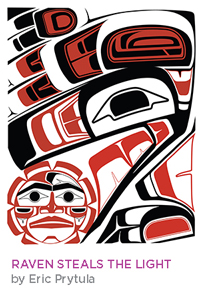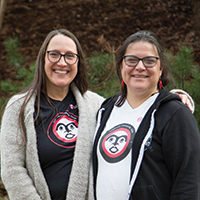 Truth and Reconciliation
Truth and Reconciliation

BCNU is committed to advancing reconciliation with Indigenous peoples – a commitment that is necessary and reflective of our values.
The BCNU Truth and Reconciliation Committee was established in 2019, following a resolution brought forward by the BCNU Indigenous Leadership Circle (ILC). The Truth and Reconciliation Committee is comprised of a member of the Provincial Executive Committee, the Indigenous Leadership Circle council liaison, and members of the ILC. It works to support, guide, and strengthen BCNU’s commitment to truth and reconciliation with Indigenous members and communities.
Recommendations put forward by the Truth and Reconciliation Committee include the creation of a platform that serves as a space to educate and engage BCNU members and the broader community about the history and efforts of the Truth and Reconciliation Commission of Canada, which believes that for Canada to flourish in the 21st century, Reconciliation between Indigenous and non-Indigenous Canada follows these principles:
- The United Nations' "Declaration on the Rights of Indigenous Peoples" provides the framework for Reconciliation at all levels and across all sectors of Canadian society.
- First Nations, Inuit, and Métis peoples, as the original peoples of this country and as self-determining peoples, have Treaty, constitutional, and human rights that must be recognized and respected.
- Reconciliation is a process of healing of relationships that requires public Truth sharing, apology, and commemoration that acknowledge and redress past harms.
- Reconciliation requires constructive action on addressing the ongoing legacies of colonialism that have had destructive impacts on Indigenous peoples’ education, cultures and languages, health, child welfare, the administration of justice, and economic opportunities and prosperity.
- Reconciliation must create a more equitable and inclusive society by closing the gaps in social, health, and economic outcomes that exist between Indigenous and non-Indigenous Canadians.
- All Canadians, as Treaty peoples, share responsibility for establishing and maintaining mutually respectful relationships.
- The perspectives and understandings of Indigenous Elders and Traditional Knowledge-Keepers about the ethics, concepts, and practices of Reconciliation are vital to long-term reconciliation.
- Supporting Indigenous peoples’ cultural revitalization and integrating Indigenous knowledge systems, oral histories, laws, protocols, and connections to the land into the Reconciliation process are essential.
- Reconciliation requires political will, joint leadership, trust-building, accountability, and transparency, as well as a substantial investment of resources.
- Reconciliation requires sustained public education and dialogue, including youth engagement, about the history and legacy of residential schools, Treaties, and Indigenous rights, as well as the historical and contemporary contributions of Indigenous peoples to Canadian society.
BCNU invites you to explore the information below and join us in our ongoing commitment to truth and reconciliation.
- BCNU issued an apology letter on International Nurses Day in 2022 to Indigenous peoples for the racism and discrimination they experienced at the hands of nurses and the profession of nursing in the residential and day school system, Indian hospitals and in the current health-care system.
- Summary of the Final Report of the Truth and Reconciliation Commission of Canada outlines the devastating legacy of the Indian residential school system (IRSS) on Indigenous peoples in Canada.
- Truth and Reconciliation Commission of Canada: Calls to Action includes 94 recommendations to redress the harmful legacy of colonialism.
- In Plain Sight is a report that contains findings of an investigation into Indigenous specific racism in BC health care along with 24 recommendations to provincial government and other health-care related institutions to address the ongoing issues.
- Reclaiming Power and Place is the National Inquiry into Missing and Murdered Indigenous Women and Girls executive summary of the Final Report. It reveals that persistent and deliberate human and Indigenous rights violations and abuses are the root cause behind Canada’s staggering rates of violence against Indigenous women, girls and 2SLGBTQQIA people.
- BC College of Nurses and Midwives’ Indigenous Cultural Safety, Cultural Humility and Anti-Racism practice standards that requires nurses to embody these principles in their daily practice.
Truth and Reconciliation Committee Resources
An interview with BCNU Truth and Reconciliation Committee members Michelle Martinson and Monique Pat

Bulletin
Raven Steals the Light
The artwork Raven Steals the Light by Haida artist Erik Prytula, from the eagle clan Tsiits Gitanee, is inspired by the creation story where the raven steals the sun, the moon and the stars and puts them in the sky, creating life as we know it. The print is a representation of nurses bringing light to dark places
Resources
Learn more about the meaning of land back and issues related to Indigenous sovereignty.
BCNU Support
Members can submit requests for support from our membership department and occupational health and safety department – prevention team on this BCNU Support page.

